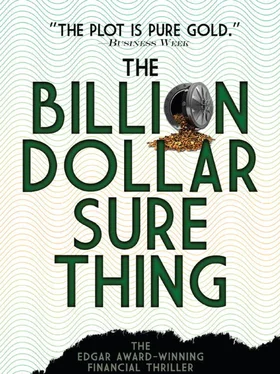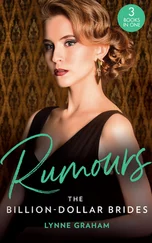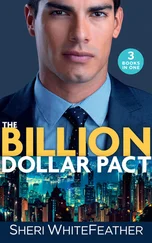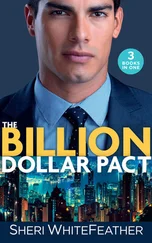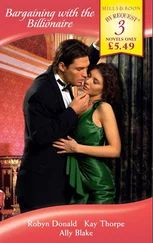Bollinger appeared fidgety. He adjusted the back of his seat for the third time. He looked a bit worn, too, when he came in. Well, not exactly worn. Burdened. No, that wasn’t the right word either. Melekov’s thoughts kept switching back and forth from his paper to the man now more or less settled in front of him.
The door of the plane was closed, and gradually they started working their way toward the end of the runway for takeoff. In spite of a huge volume of traffic, by far the greatest in Europe, for some reason one never had those ridiculous lineups like in New York. Within five minutes they were airborne.
Melekov liked to watch London from the air—especially at this time of the evening. The spread of the city was simply enormous. The gas vapour lamps forming their endless lines below, part in yellow, part in a most pure white, gave the impression of an infinity of densely packed people. Los Angeles gave something of the same impact. But not really the same. There the horizon was broken by upthrusting mountains. Here the rows of lights seemed to travel as far as the eye could reach.
Melekov ordered a dry martini—with gin, on the rocks. He observed that Bollinger had done the same. Melekov took out the olive and ate it. He always did that.
Bollinger had needed that one. He called the girl back within no more than two minutes and asked for a second. He then began wrestling with his briefcase. By the time the girl had returned, he had apparently retrieved the object of his grappling search—a rather ridiculously bound dossier, in bright red of all things.
It’s really not all that easy to watch somebody sitting right in front of you in an airplane. But Melekov had the advantage of the sudden darkness which had closed in on the plane as it abruptly moved into the cloud cover at over two thousand metres. It made a perfect mirror of the windows, provided the angle was right. Melekov remained hunched over his window, apparently awed by the fact that there was absolutely nothing to see. It was impossible to follow the text of the document in the hands of the man in front of him. But a flash impression of the capitalized words in mid-page, apparently following a lead-in paragraph, burned into Melekov’s brain: ADJUSTING THE GOLD-DOLLAR PARITY.
What the hell, thought Melekov. If—but no. Probably just another new study on monetary reform by some genius at the Bank of England. But why does Bollinger appear so—harried! That’s the word I was looking for. Harried. He’s not the type.
Bollinger slammed the dossier closed, and with a bit more bouncing around—which normally can prove damned annoying for fellow passengers in the vicinity—once again retrieved his briefcase, put the document back in, closed it, locked it, put it on the seat beside him, and settled back to finish his drink with an almost audible sigh.
Melekov settled back in his seat and ordered a second one himself. They were already starting to cross the Channel, according to the loudspeaker. The rumblings beyond the curtain indicated that dinner would shortly be underway.
Apparently the drinks had already gotten to Bollinger. He rose and headed toward the washroom. Melekov’s eyes automatically followed his movements. Bollinger was taking his briefcase with him to the toilet!
Three minutes later Bollinger returned toward his seat. This time he seemed less preoccupied than when he had boarded. He surveyed the five people up front with no apparent special interest. Melekov put aside his newspaper and looked up. Recognition struck both faces simultaneously, and Melekov rose from his seat as Bollinger moved toward him.
“Igor!” exclaimed Bollinger. “What a surprise!”
“Extremely nice to see you again, Reinhardt,” replied Melekov. “Why don’t we have a drink together?”
“Well, actually I’ve already had one.”
“Me too. But they’re free up here. And I’m sure that you are just as pooped as I am after a day in London.”
Bollinger accepted the invitation to join Melekov without any further hesitation. But first he deposited his briefcase at his window seat. The girl accepted the order for a third set of dry martinis as gracefully as airline stewardesses accept any request these days and returned with the glasses immediately. Probably a hint that it was time to eat, not drink.
“ Zum Wohl ,” said Melekov, and Bollinger reciprocated with a tip of his glass. “Well, well,” said Bollinger, “you’re going to honour us with a visit to Switzerland?”
“Just a very short one. It’s been six months since my last trip. You remember, we had lunch in the Baur au Lac, Reinhardt.”
“I remember well—especially the three, or was it four, kirschwassers, following dessert. Tell me, are you satisfied with the progress of your new venture in Zurich?”
“Quite,” answered Melekov. “We actually never did intend to make our Zurich operation too big. But still, we thought we had to get our foot into Switzerland just like everyone else these days. The money and capital markets—and, of course, the foreign exchange business—is just too big to be ignored. But London and Paris will remain our chief operational centres in Western Europe.”
“How about the personnel problem?” queried Bollinger.
Melekov chuckled, “Reinhardt, you’d be surprised. We have much less of a problem getting good people than most of the domestic banks. I think that it’s probably curiosity.”
“Tell me,” continued Bollinger, “is there by any chance anything we at the BIS can do for you fellows these days?”
“Actually there is. I think some of our people—from Moscow, not Zurich—will be contacting you again within the next couple of days. We have decided to sell twenty million ounces of gold, and as usual we would like your people to handle it. This is the first time in years that we will be selling, and we hope that you will be especially careful to handle the transaction with the usual utmost discretion.”
“Right,” replied Bollinger. “No worry there, as you should know by now. You must think the gold price is going to hold for a while right where it is, I assume?”
“That’s always a difficult question. For years the free price in Zurich and London has been moving back and forth between $55 and $75 an ounce. It’s really just luck if you pick a week where you are selling nearer one than the other. We can’t always choose just that exact moment we would like, you know. It’s no secret to you or anybody else that we are going to have to make some big payments soon on our wheat imports from the United States. Our supplies of grain, as you must well know, have fallen to catastrophically low levels. So we will need to gather up a few more dollars than usual this winter. Do you think we are making a mistake on timing?”
Melekov watched Bollinger’s face with the greatest possible concentration. No doubt about it, there was a flicker of hesitation before he answered.
“Well, Igor, as you know we really do not have any opinions at the BIS except for those which we publish in our annual report. But I can say this: every central bank in the world has faced the same dilemma for years, namely what proportion of their international reserves they should hold in gold relative to dollars. Of course, your country is in a special position. Like South Africa you produce gold in quantity, and for you it is not just a currency reserve unit but an industrial product, if you like. I would guess that in your case, as you just indicated in fact, to sell, buy, or hold gold is not just a decision upon your judgment of the world monetary situation but is closely related to your varying needs for dollars for foreign trade settlements—gold for wheat, in this instance.”
“Thanks for the advice, Reinhardt.”
Читать дальше
